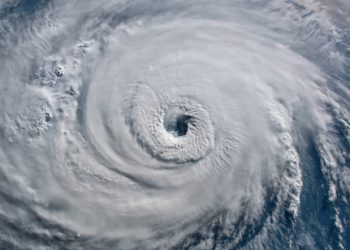 BP has subpoenaed the private emails of scientists who studied the Deepwater Horizon oil catastrophe, stoking fears of misinformation campaigns and researcher intimidation.
BP has subpoenaed the private emails of scientists who studied the Deepwater Horizon oil catastrophe, stoking fears of misinformation campaigns and researcher intimidation.
The situation “should concern all those who value the principles of academic freedom and responsibility, and believe these principles to be essential to the integrity of the deliberative scientific process,” wrote Woods Hole Oceanographic Institute president Susan Avery and research director Laurence Madin in a statement released June 3.
On the same day, WHOI oceanographers Christopher Reddy and Richard Camilli announced in a Boston Globe commentary that they’d given to BP 3,000 confidential emails requested by the company in December 2011.
BP hopes the emails will help in its ongoing legal battle over the exact volume of oil released by the blown-out Macondo wellhead in the spring and summer of 2010. The volume will determine BP’s financial liabilities, and Reddy and Camilli led the WHOI research team that calculated the now-accepted estimate of 4.9 million barrels.
Reddy and Camilli had already released “more than 50,000 pages of documents, raw data, reports, and algorithms used in our research – everything BP would need to analyze and confirm our findings,” they wrote in the Globe. “But BP still demanded access to our private communications. Our concern is not simply invasion of privacy, but the erosion of the scientific deliberative process.”
‘Pulling academics and researchers into litigation … will have a chilling effect on how science is conducted.’According to WHOI, the implications of BP’s demands, which extended to “any transmission or exchange of any information, whether orally or in writing, including without limitation any conversation or discussion,” are twofold.
As scientists’ personal communications – especially the back-and-forth, give-and-take, off-the-cuff devils’ advocacy and informal discussion essential to scientific deliberation – are taken out of context, confusion will almost surely follow.
Remarks that are part of an argument will be turned into categorical statements or otherwise misrepresented, as happened after the 2009 leak of climate scientist emails. Transparency could turn to opacity.
Another possibility, one that may resonate long after the Deepwater Horizon fallout has settled, is caution and wariness among researchers. The possibility of subpoena and digital interrogation may dissuade scientists from studying future disasters and could influence how they think and communicate.
“The essence of the scientific process is rigorous deliberation in which scientists examine, question, test, reject, and modify ideas as they work toward a verifiable conclusion,” wrote Avery and Madin in WHOI’s statement. “Pulling academics and researchers into litigation they are not a party to will have a chilling effect on how science is conducted.”
Reaction to these fears has been mixed. Marine biologists Kevin Zelnio and Miriam Goldstein of Deep Sea News both tweeted their concerns, with Goldstein worrying about the precedent and Zelnio wondering if BP will “treat oceanographers as dishonestly as climate denialists treated researchers.”
Science policy expert Roger Pielke of the University of Colorado was more sanguine, writing on his blog that publicly supported scientists should expect to share their full deliberations. “Besides, good science, even when messy, does not need to be hidden from view,” wrote Pielke.
Attorney David Pettit of the Natural Resources Defense Council also said that concerns may be overblown, though he preferred to talk about the legal dynamics shaping BP’s request.
Whereas federal law has established special protections for attorney-client privileges, doctor-patient confidentiality and journalists shielding their sources, there are no protections for academic scientists. Requests like BP’s are considered on a case-by-case basis.
“It wouldn’t surprise me if an academic institution went to the Supreme Court and said we need another exemption for academic research,” Pettit said.
Source: Wired Science





























































